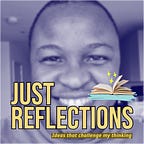Would you like to change your career but feel like it’s too risky given how much you’ve invested in it?
Back in 2014, I was a fresh graduate in a career that I knew wasn’t really my thing. I was a civil and water engineer, but I really wanted to work with computers. My job involved going out to site and I really don’t enjoy working outdoors, my sight is also not great in strong sunlight so it made it even more of a pain. I wanted to change to something to do with computers, but I had some obstacles: I didn’t know exactly what computer thing I want to do. This got worse as I gained more seniority and was making good money for my age and switching would mean taking a big pay cut and a drop in seniority. Finally, I was a civil engineer, so everyone thought I had the dream job and no one understood why I want to change.
I needed to figure out what I want to do and make a career switch in a way that didn’t feel like I was throwing all my hard work and my parents’ investment in my education down the drain.
Most people discover on the job they don’t like their careers and would rather do something else. They make the late realisation that what they’re doing doesn’t align with their natural gifts, talents, or interests. One reason for this is that we have to choose our careers early before we understand ourselves enough to know what we like and what we’re good at. This is compounded by several factors. Most people don’t have good guidance when they choose careers; we choose what our parents or other role models like or do, or we choose what we think will make us a lot of money. Some of us are forced into our career choices by circumstances; we come from disadvantaged backgrounds and need to make money as quickly as possible or we grew up in countries that had limited options or dead-end paths for many non-conventional careers.
Whatever the case, you’ve figured yourself out later in life and know what you’d rather be doing. Maybe you’re even doing it on the side and want to make it your main thing. But changing careers is difficult. We don’t have a lot of time when we’re older, responsibilities pile up and they’re all waiting for the paycheck from this job we don’t like. Besides, taking chances with your life when you’re older is just uncomfortable. As Garry Kasparov and Mig Greengard aptly put it.
It is far easier to tell millions of newly redundant workers to "retrain for the information age" or to "join the creative entrepreneurial economy" than to be one of them or to actually do it. — Garry Kasparov and Mig Greengard, Deep Thinking
If this sounds like you, don’t worry. I was also in that situation. Fast forward to today, I’m a senior software engineer working for a big tech company. To get here, I transitioned through careers as a Geographic Information Systems (GIS) Analyst and a GIS consultant without going back to school or taking gaps. And I’m quite happy with the state of my career.
So let me save you some time and give you the recipe. Here are four things I did to change my career (twice) with limited risk.
Gain the skills you need before making the switch
Build a rich portfolio
Perform above expectation
Leverage your unique background to differentiate yourself
#1: Gain the skills you need before making the switch
You don’t have to first quit your job to gain the skills in the new thing. It’s too risky and leaves you exposed.
Gain the skills you need while you’re at your current job. Figure out if the new thing is really something you want to do, or if it’s a “grass is greener on the other side” situation. The best way to figure this out is to just do it. Don’t worry about money at this stage. In fact, offer to do it for people for free. If you struggle to do good work without the motivation of a paycheck, that might be a sign. Doing it for free will allow people who would have never given you paid work without experience to give you a chance. This will start you off in building a network. If you can’t find anyone to do it for, then do things for yourself. Either way, take an interest in the thing you want to switch to so that you understand what you’ll need to learn and start learning it and building a network and doing actual work at low risk.
This will allow you to build your portfolio—more on that next—and to figure out if this is really something you want to do and what the prospects are from the comfort of your current profession.
#2: Build a rich portfolio
You don’t have any certification for the new thing. The people you’ll be competing with when you switch are probably younger or more experienced than you, or they have the right qualifications. You need some paper of your own.
Your portfolio will be proof of your competence. Sure, you don’t have a diploma, but you can build a body of work you’ve done that shows that you can do the work. If those people you offered to do free work for in step one agreed, then you also have a list of clients who are happy with the work you’ve done for them. (Maybe some of them even felt guilty for taking your amazing work for free and gave you a few cents)
This will not only show your capability, but it will set you apart. Most people who have a qualification in a field don’t invest as much time in building a rich portfolio, especially one that includes a range of private clients, so you’ll stand out as passionate about your field.
#3: Perform above expectation
Every time you talk to someone in your new career, you’ll have a hurdle to get over; their scepticism about your knowledge and skills as someone who is “not native” to it. It’s not great, but it’s the reality. One way to make sure that this won’t be an issue is to have work that is miles ahead of everyone else’s. If you do that, you won’t get questions about your capabilities. The work will speak for itself. If you’re asked to go one mile, go two.
No fancy things to say here. Just put your head down and do excellent work.
#4: Leverage your unique background to differentiate yourself
While you don’t have the qualifications that the people you’ll be competing with have, you have something they don’t have. Your knowledge from your other domain.
Each domain teaches many cross-disciplinary skills. Each career has something unique that it gives to its practitioners. Whether it’s the work ethic of chefs, the structured thinking of engineers or the compulsive attention to detail of accountants, you will have something from your current profession that people in your new one do not. Don’t let that go to waste. Use it to your advantage. Let it be your distinguishing feature, your competitive advantage. If not for anything else, use it to show that you have a different story from everyone else. So they won’t just be getting a software engineer if they hire me, they’ll also be getting a GIS Analyst and a Civil Engineer. They’ll be getting my extensive project management experience. My unique contracts management knowledge, etc. And my unique conflict resolution skills earned from haggling with unscrupulous contractors during site inspections. (Not to forget the permanent sunburn battle scars earned from hours in the blazing Limpopo sun)
You have a unique story. Use it to your advantage to set yourself apart.
Conclusion
Let’s close with more words from Kasparov and Greengard;
The willingness to keep trying new things-different methods, uncomfortable tasks-when you are already an expert at something is what separates good from great. Focusing on your strengths is required for peak performance, but improving your weaknesses has the potential for the greatest gains. This is true for athletes, executives, and entire companies. Leaving your comfort zone involves risk, however, and when you are already doing well, the temptation to stick with the status quo can be overwhelming, leading to stagnation. — Garry Kasparov and Mig Greengard, Deep Thinking
Here’s the main thing I learnt; if you want to change your career, you have to fully commit to it with all your time and effort.
You have to switch with your private time long before you switch the nine-to-five. If you prepare correctly, it won’t feel like so much of a risk. It will feel like the next logical step. The good news is that you don’t have to do this forever. After some time, you’ll accumulate enough experience in the new career that the experience will now become your competitive advantage. Then you can relax and ride the wave until you decide to switch careers again. You’re a pro now.










